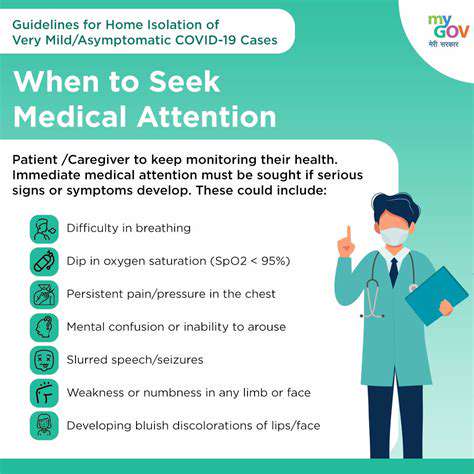Signs of Gastrointestinal Distress: Recognizing Common Symptoms
Common Symptoms of Gastrointestinal Distress

Physical Signs of Gastrointestinal Distress
Gastrointestinal distress often manifests through a range of physical symptoms that can be quite uncomfortable. Common indicators include abdominal pain, bloating, and unexplained weight loss. Individuals experiencing these symptoms should not ignore them, as they might indicate a more serious underlying condition.
Nausea and vomiting are also frequent complaints in cases of gastrointestinal distress. These symptoms can lead to dehydration and require immediate attention if they persist for more than a day or two. Not only can they cause physical discomfort, but they can also impact an individual’s overall well-being.
Changes in bowel habits, such as diarrhea or constipation, are other prevalent signs. These alterations can disrupt daily routines and indicate various gastrointestinal disorders, emphasizing the importance of monitoring one’s digestive health.
Emotional and Mental Symptoms Linked to Gastrointestinal Distress
The relationship between gastrointestinal health and emotional well-being is significant, as stress and anxiety can exacerbate physical symptoms. Individuals may find themselves feeling more irritable or anxious when faced with gastrointestinal symptoms, further complicating their health. Recognizing this connection is vital for managing both physical and emotional health.
Moreover, gastrointestinal distress can lead to feelings of isolation or embarrassment, particularly when it comes to discussing symptoms like diarrhea or bloating. This can discourage individuals from seeking the help they need. Breaking this stigma and promoting open conversations about digestive health can enhance overall quality of life.
It's essential to acknowledge that the mental toll of gastrointestinal distress can be as impactful as the physical symptoms. The anxiety of anticipating discomfort can lead to avoidance behaviors, potentially exacerbating the distress and lowering one’s quality of life.
When to Seek Medical Attention

Recognizing Severe Symptoms That Require Immediate Care
When experiencing gastrointestinal distress, certain symptoms can signal a serious condition that necessitates immediate medical attention. For instance, persistent abdominal pain that does not subside with over-the-counter medications should prompt a consultation with a healthcare provider. It's essential to listen to your body; if the pain becomes increasingly intense, it may be a sign of a severe underlying issue.
Along with pain, other red flags include a sudden onset of vomiting, especially if it appears bloody or resembles coffee grounds. This type of vomiting can indicate significant bleeding in the gastrointestinal tract, which is a medical emergency. Additionally, if you notice black or tarry stools, it could be a sign of internal bleeding, warranting immediate evaluation by a medical professional.
Fever accompanying gastrointestinal symptoms should also raise concern. A high fever, particularly when coupled with abdominal pain or severe diarrhea, may indicate an infection requiring antibiotics or further intervention. Being proactive in these situations can greatly improve outcomes, emphasizing the need to seek care without delay.
Understanding When Home Remedies Are Not Enough
Many individuals often resort to home remedies when they encounter mild gastrointestinal distress. However, it is crucial to recognize when these solutions fall short. If symptoms persist for more than a few days despite attempts at at-home treatment, such as dietary changes or over-the-counter medications, it is time to consult a healthcare provider. Prolonged symptoms can indicate a more serious condition that requires professional evaluation.
Another situation to consider is the presence of chronic symptoms like consistent bloating, gas, or irregular bowel movements. If these issues disrupt daily life and do not improve through lifestyle adjustments, professional guidance is recommended. Ignoring chronic gastrointestinal issues can result in worsening conditions and complicate treatment options later on.
Lastly, if there are any accompanying symptoms like unexplained weight loss, low energy, or severe dehydration due to vomiting or diarrhea, you should seek medical advice promptly. These signs can be indicative of a significant health problem that demands thorough investigation to avoid complications.